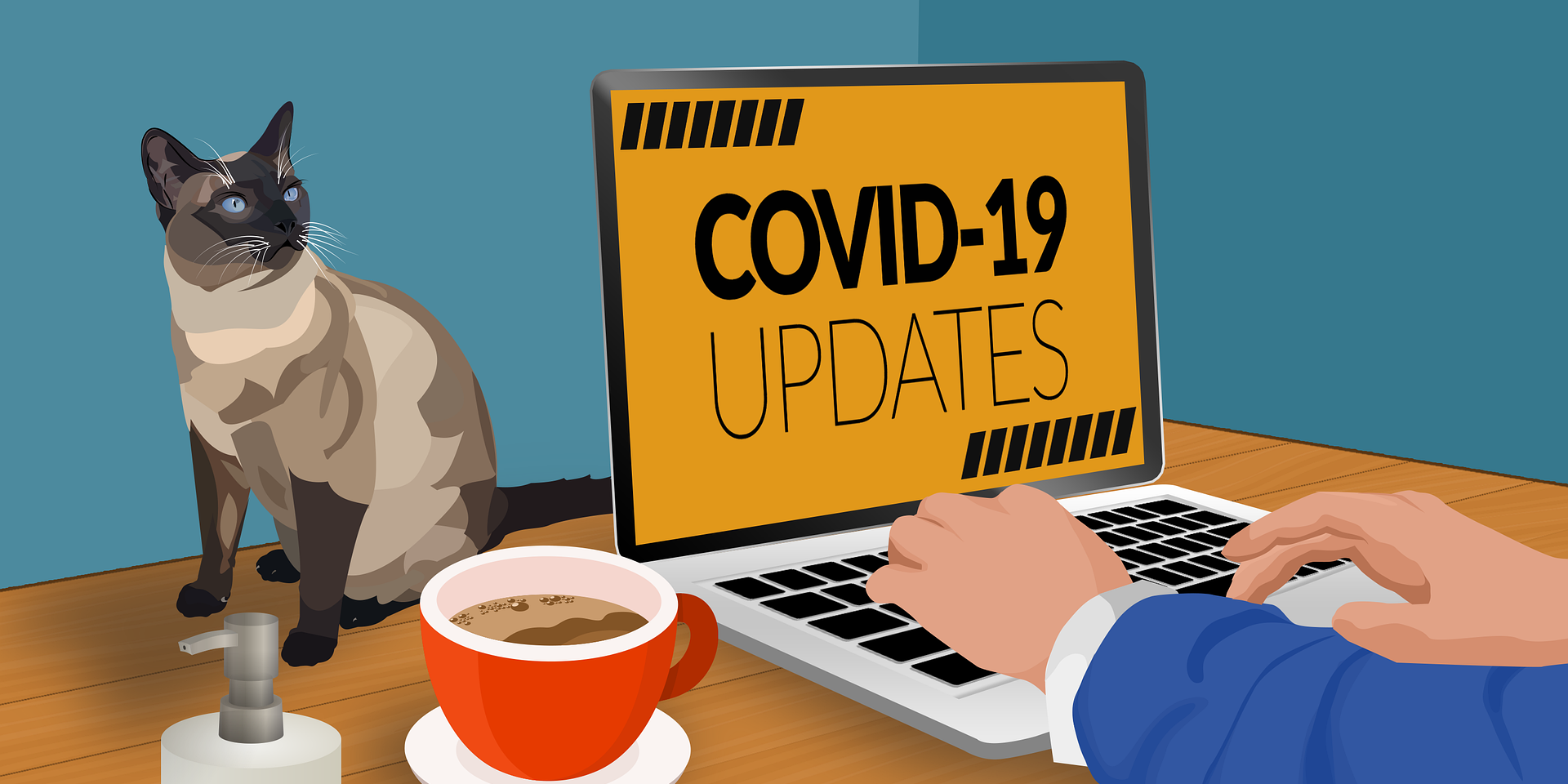Claim Home Working Expenses Due to COVID-19
Posted on 2nd May 2020 at 14:22
Tax-free home working allowance of £6 per week from 6th April 2020
As a result of spending more time at home as a result of working from home, it is likely you maybe incurring higher heating and lighting costs, telephone/internet charges etc. owing to work. An allowance can be claimed to cover such costs on the basis that an employee is now performing substantive duties at home, and other conditions are meet, as per HMRC’s guidance, details can be found by CLICKING HERE.
So who is affected:
You could be affected if you (an employee) are working from home due to COVID-19, either because:
– your workplace has closed
– you are following advice to self-isolate
Who is not affected:
Furloughed workers who are eligible for the Coronavirus Job Retention Scheme.
What can be claimed:
Expenses such as electricity, heating or broadband:
Payment or reimbursement to employees of up to £4 a week (£6 a week from 6 April 2020) is non-taxable in regards to the additional household expenses incurred when an employee is working from home. If however the claim is above this amount, then the employee will need to check with the employer beforehand to confirm these payments (receipts need to be retained).
Other claimable expenses:
Equipment (service or supply):
Mobile phones and SIM cards (there is no restriction on private use). If the employer provides a mobile phone and SIM card without a restriction on private use (this is limited to one per employee) then this is non-taxable.
Broadband:
If the employee already pays for broadband, then no additional expenses can be claimed. If however a broadband internet connection is needed in order to work from home, and one was not already available, then the broadband fee can be reimbursed and is non-taxable (in this instance the broadband provided is for business and any private use must be limited).
Laptops, computers, and office supplies:
If these are mainly used for business purposes and there is not significant private use then these are non-taxable. Reimbursing expenses for office equipment an employee has purchased (bought). If an employee has needed to buy home office equipment to allow them to work from home, then this should have been discussed in advance.
If an employer reimburses an employee with the actual cost of the purchase, then this is non-taxable, on the provision there is no significant private use. If however the employer does not reimburse the employee, then the employee can claim tax relief for these purchases on their tax return (self assessment) or P87 (for those who fall out of the scope of self assessment), on the provision that the amount claimed is incurred wholly, exclusively and necessarily in the performance of the duties of employment.
Employees need to keep records of their purchases and claim for the exact amounts
There are strict tests that need to be passed in order to qualify for tax relief.
Employer provided loans (or salary advance)
To help employees at a time of hardship, these count as an employment-related loan
(Loans provided with a value less than £10,000 in a tax year are non-taxable)
Temporary accommodation
If an employee needs to self-isolate but cannot do so in their own home, employers
can reimburse hotel expenses and subsistence costs, (these are taxable)
Employees using their own vehicle for business
Employers can pay the approved mileage allowance payment of 45p per mile up to 10,000 miles (25p per mile thereafter). This is free of tax and National Insurance contributions. If the employer does not pay a mileage allowance, an employee can still claim tax relief through their Personal Tax Account.
CLAUSE – Significant private use:
For items which are taxable, exemptions for work related benefits do need to show that there is no significant private use.
So what does HMRC accept – Guidelines:
• your policy about private use is clearly stated to your employee and sets out the circumstances in which private use may be made (this may include making the conditions clear in employment contracts or asking employees to sign a statement acknowledging company policy on what use is allowed and any disciplinary consequences if the policy is not followed)
• any decision of the employer not to recover the costs of private use is a commercial decision, rather than rewarding your employee
Significant private use should not be based on the time spent on different uses. It should be based on your employee’s duties and the need for them to have the equipment or services provided so they can do their job. You do not have to keep detailed records of every instance of private use to prove a claim for exemption.
Reporting to HMRC
Taxable expenses or benefits
Any expenses or benefits which are related to COVID-19 can be reported on the employers PAYE Settlement Agreement, meaning you can settle tax and National Insurance contributions on any expenses or benefits (even though the responsibility would usually be on the employee, or on both the employer and the employee). This applies to coronavirus related items only. If the employer is currently dealing with benefits in kind via the payroll, then you may continue to report expenses and benefits through the payroll. The employer must also continue to report expenses and benefits through P11D returns
Non-taxable expenses or benefits
Do not need to be reported to HMRC.
Article content based on government guidelines (published/last update 19 May 2020).
For help and support please contact us on 0121 550 8509 or email info@godfreymansell.co.uk.
Tagged as: Covid 19, Work from home
Share this post:



